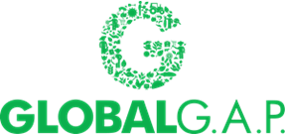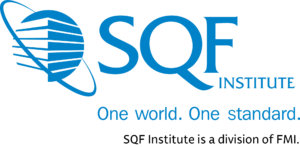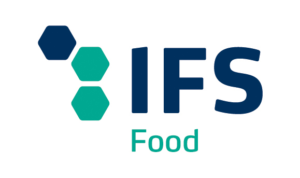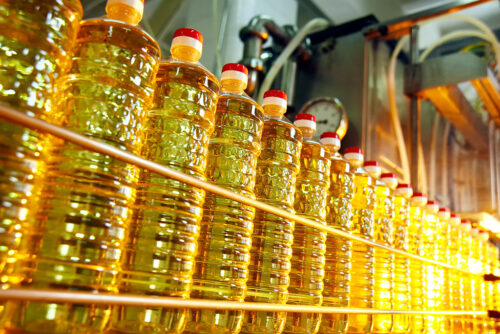The FSSC 22000 Food Safety System Certification scheme provides a framework for effectively managing your food safety and quality responsibilities. FSSC 22000 is fully recognized by the Global Food Safety Initiative (GFSI) and is largely based on existing ISO Standards. Certification demonstrates that a company has a robust and effective food safety management system (FSMS) in place to meet the requirements of regulators, food business clients and consumers.
FSSC accreditation is held by FoodChain ID company Inscert Partner (Quality Partners).
The audit process for FSSC 22000 is based on the ISO 22000 framework and has a three-year cycle. To help ensure continuous improvement, surveillance audits are scheduled annually followed by a full recertification audit once every three years. The FSSC standard requires that one of the annual surveillance audits is conducted as an unannounced audit.
The FSSC 22000 standard is based on the publicly available technical specifications:
- ISO 22000:2018 requirements for any organization in the food chain
- Relevant prerequisite programs (PRPS) based on technical specifications for the sector (EG, ISO/TS 22002-1 to 6)
- FSSC additional requirements as determined by the FSSC foundation stakeholders
And:
- ISO 9001 requirements (where the optional FSSC 22000 Quality is required)
What are the benefits of FSSC 22000 Certification?
FSSC Benefits
- ISO-based supply chain approach
- GFSI recognized
- Use of existing, independent, international standards
- ISO 22000, ISO 22003 and technical specifications for sector pre-requisite programs
- ISO/IEC 17021-1:2015 accreditation (system and process approach)
- Wide scope: food and beverage product and ingredient manufacturing (including slaughtering and pet food)
- Stakeholder approval and commitment (industry, retailers, NGOs)
- In depth and rigorous food safety audits
- Independent scheme management managed by the Foundation for Food Safety Certification, a not-for-profit organization
- Transparency
Who needs FSSC Food Safety Certification?
FSSC Certification is applicable to:
- Finished food manufacturers (branded & unbranded products)
- Raw material and ingredient suppliers
- Packers of primary products (e.g. fruit & vegetables)
What does FSSC 22000 cover and what are the requirements to achieve Certification?
The ISO 22000 Standard details the requirements for the following:
- Scope
- Terms and Definitions
- Context of the organization
- Leadership
- Planning
- Support
- Operation
- Performance evaluation of the food safety management system
- Improvement
ISO/TS 22002-1:2009 details the requirements for establishing, implementing and maintaining prerequisite program (PRP) to assist in controlling food safety hazard as specified in clause 7 of ISO 22000:2005.
ISO/TS 22002-1:2009 specifies detailed requirements to be specifically considered in relation to ISO 22000:2005, 7.2.3: a) construction and layout of buildings and associated utilities; b) layout of premises, including workspace and employee facilities; c) supplies of air, water, energy, and other utilities; d) supporting services, including waste and sewage disposal; e) suitability of equipment and its accessibility for cleaning, maintenance and preventive maintenance; f) management of purchased materials; g) measures for the prevention of cross-contamination; h) cleaning and sanitizing; i) pest control; j) personnel hygiene.
In addition, ISO/TS 22002-1:2009 adds other aspects which are considered relevant to manufacturing operations: 1) rework; 2) product recall procedures; 3) warehousing; 4) product information and consumer awareness; 5) food defense, biovigilance, and bioterrorism.
FSSC 22000 Part II Requirements for Certification
In addition to the requirements of ISO 22000 and ISO/TS 22002-1:2009 organizations seeking certification need to comply with the FSSC scheme requirements. There are nine additional requirements in total, 7 of which apply to Food Chain Category C: Food Manufacturing.
The additional Scheme requirements are:
1) Management of services,
2) Product labelling,
3) Food defense,
4) Food fraud prevention,
5) Logo use,
6) Management of allergens (for categories C, I and K only),
7) Environmental monitoring (for categories C, I and K only),
8) Formulation of products (for category DII only),
9) Management of natural resources (for category A only).
Category Key
A – Farming of animals
C – Food manufacturing
D – Animal feed production
DII – Production of pet food
I – Production of food packaging and packaging materials
K – Production of (Bio) chemicals
How much does a FSSC audit cost and how do I become FSSC certified?
The cost of FSSC certification depends on many factors including the food chain category that the site falls in to i.e. food manufacturing, the number of HACCP plans and number of employees, time required to assess PRP programmes and FSSC requirements. To take the first steps in becoming FSSC certified, please contact our office so we can assess the requirements of your business.
We are currently ISO 22000 and would like to upgrade to FSSC 22000, what do we need to do?
ISO 22000 is a worldwide standard for food safety management. Manufacturers that are ISO 22000 certified can obtain full GFSI recognized FSSC 22000 certification by meeting the requirements of the technical specifications for sector PRPs and additional FSSC 22000 scheme requirements. When converting an ISO 22000 certification to FSSC 22000 certification, a full stage 1 and 2 audit will not be required to transfer the ISO 22000 part of the FSMS to FSSC 22000. The transition audit can be combined with a scheduled ISO 22000-surveillance audit or recertification audit which must be performed at the premises of the organization.








